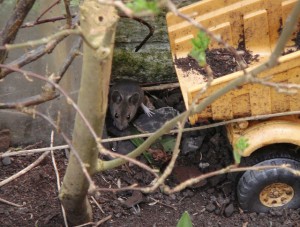With new pesticides always on the horizon, the concern for our friendly-natured honey bees becomes apparent, however, a new formula that was created using spider venom appears to cause little to no harm to our garden companions.
The new solution is said to be toxic to many key pests, but shows no sign of damage to the honey bee’s survival rates or brain functions. It is thought that the larvae are capable of breaking down the chemical in their gut; meaning that next to no risk is posed to the species.
According to Planet Earth, scientists have high hopes that this new formula could provide pest control companies with a safer alternative to neonicotinoid pesticides (these pesticides have been associated with the decline in honey bees.)
Supervisor of the project, Professor Angharad Gatehouse, commented: “Our findings suggest that Hv1a/GNA is unlikely to cause any detrimental effects on honey bees.”
“Previous studies have already shown that it is safe for higher animals, which means it has real potential as a pesticide and offers us a safe alternative to some of those currently on the market.”
The formula is made with the venom from an Australian funnel web spider and extracted plant protein from snowdrops. Pure, the venom is deadly and is the most toxic of its kind.
During the study, scientists fed the honey bees the new pesticide formula, using a variety of doses. Some of the doses provided were significantly higher than the bees would ever encounter in their environment. The study ran for a total of seven days.
Throughout the research, scientists continually tested the honey bee’s memory and made note of any change in behaviour. As both learning and memory are important to the bee’s day to day lives, it’s vital that pesticides don’t have a negative impact on these two factors.
The findings revealed that “even at high concentrations, the pesticide had only very minor effects on the bees’ survival rates and no measurable effect whatsoever on their ability to learn and remember.”
Sadly, many populations of honey bees have declined, partly due to harmful pesticides, disease and loss of habitat. As honey bees’ are crucial for the growth and development of crops as well as pollination, it’s important that we take care of the species as a whole.
In terms of pesticides, neonicotinoids (a specific strand of pesticide) are thought to be damaging the honey bees’ brain function and just last year, the EU took action by “introducing a two-year moratorium on the chemicals.”
However, concerns have arisen that the alternatives to this pesticide could be even more detrimental. During a lab study, it was found that one alternative named pyrethroid reduced “the size of bumblebees’ offspring, posing a potential risk to colony success.”
While this new solution aims to target a different part of the pest’s brain in order to exterminate more specific pest species, Gatehouse is concerned and states that it’s unlikely that a single solution will be found to tackle the growing pesticide problem.
She said: “Around 90 per cent of the world’s plants are directly or indirectly reliant on pollinators to survive. If we destroy the biodiversity of pollinators then it will be irrelevant how effective our pesticides are because we won’t have any crops to protect.”
“There is now substantial evidence linking neonicotinoid pesticides to poor performance and survival in bees and what we need now is a clear directive from Government to develop and introduce bee-safe alternatives.”
If you’re looking for a specialist pest control company to help you rid of your pest problem and you’re based in London, please get in touch today through our website to find out what we can do for you!





